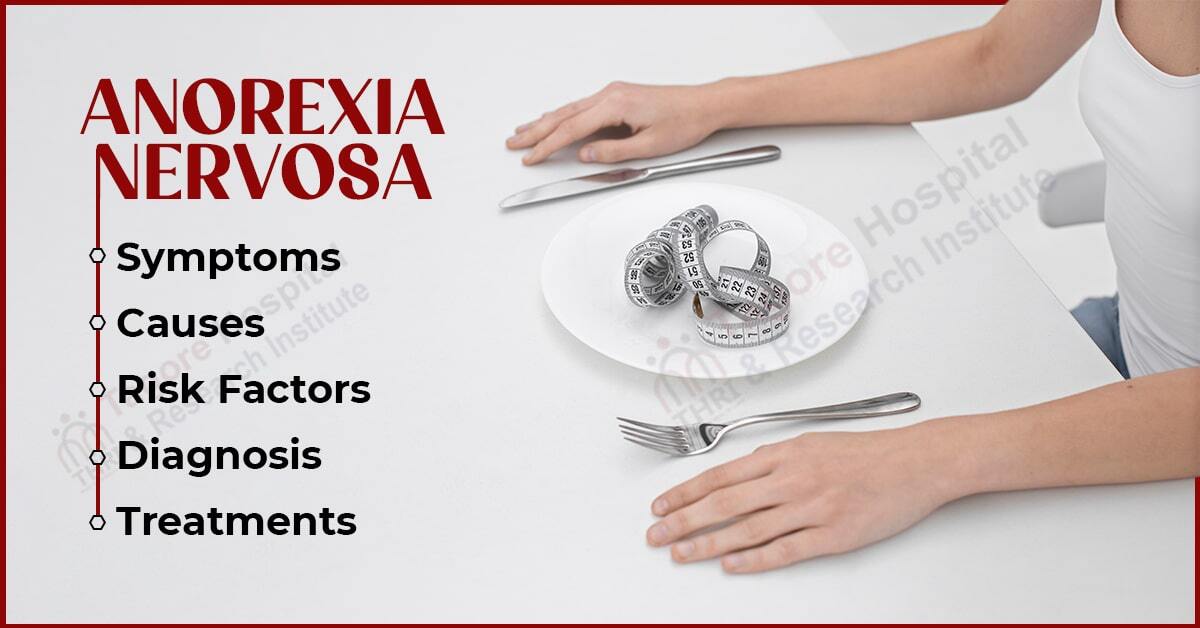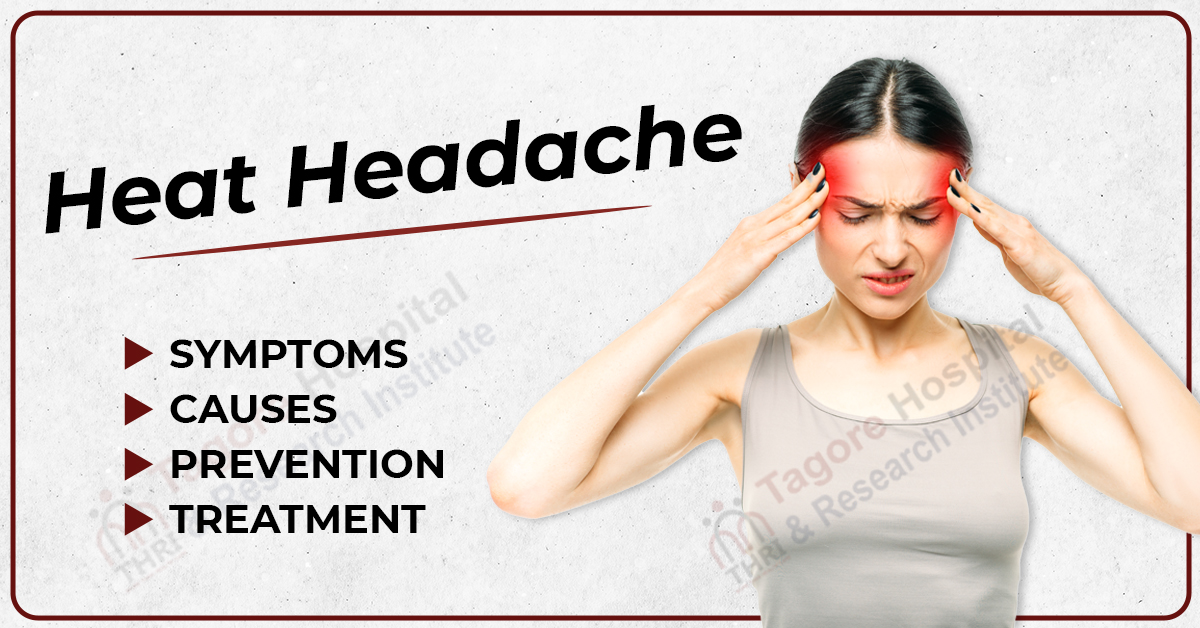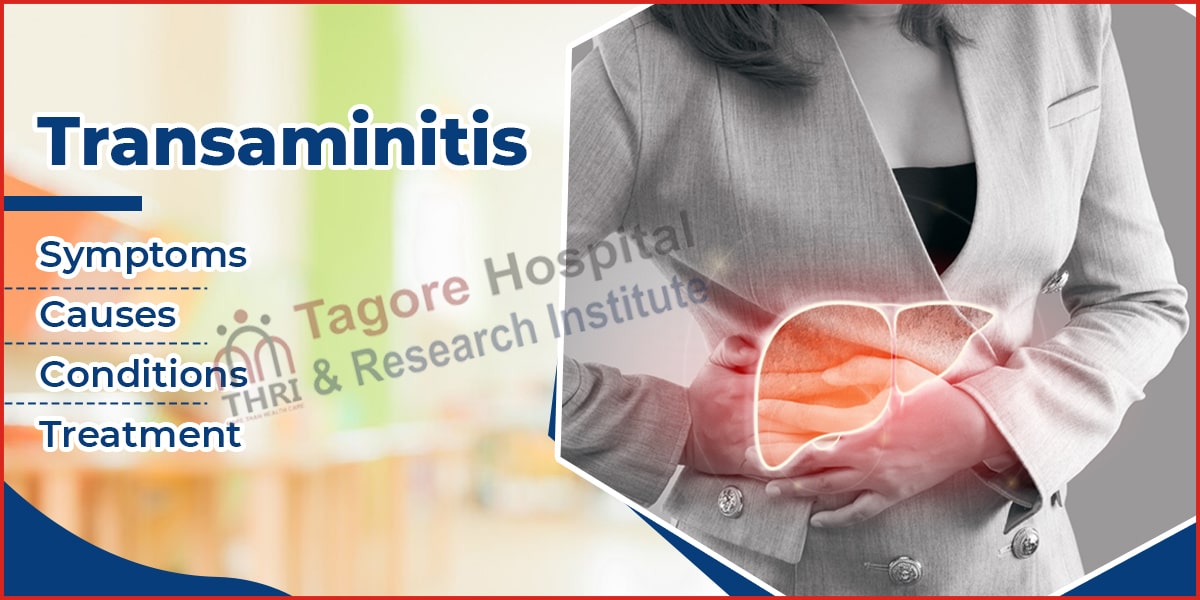- By Tagore Admin
- Posted October 16, 2023
What is Anorexia?
Anorexia is an eating disorder that was formerly known as anorexia nervosa. People who have anorexia restrict their calorie intake and food choices. Their body weight eventually increases, or they cannot maintain a healthy weight according to their height, age, stature, and physical condition.
Along with a distorted view of their bodies, anorexics also suffer from a paralyzing fear of putting on weight.
There is no cure for anorexia, which is a serious illness. Anorexics who experience extreme weight loss run the risk of becoming malnourished, developing serious health issues, or even dying.
Symptoms of Anorexia
Anorexia nervosa is characterized by a range of physical, behavioral, and psychological symptoms, including:
● Inability to keep a healthy weight.
● Intense fear of gaining weight or becoming fat.
● Distorted body image, perceiving oneself as overweight despite being underweight.
● A strict diet that forbids certain foods and restricts calories to an extreme.
● Concern for calories, food, and serving others.
● Excessive exercise.
● Social withdrawal and isolation.
● Fatigue, weakness, and physical health issues such as hair loss and brittle nails.
● Irregular or absent menstruation in females.
● Emotional and psychological symptoms like depression, anxiety, and perfectionism.
You Can Read Also:- Agoraphobia: Types, Causes, Symptoms, Risk Factors and Treatment
Causes of Anorexia
The exact causes of anorexia nervosa are complex and not fully understood, but they typically involve a combination of genetic, psychological, environmental, and societal factors. Some causes include:
● Genetic and Biological Factors: There is evidence to suggest that genetics plays a role in anorexia. People who have a family history of eating disorders may be more vulnerable. Additionally, certain neurotransmitters and hormones, such as serotonin and leptin, may be involved in regulating appetite and mood and could influence susceptibility to anorexia.
● Psychological Factors: Anorexia often co-occurs with other mental health conditions, such as depression, anxiety, obsessive-compulsive disorder (OCD), and perfectionism. Low self-esteem, a desire for control, and a need for validation can contribute to the development of anorexia.
● Sociocultural Influences: Societal pressures regarding body image, beauty standards, and the portrayal of thinness in media can contribute to the development of anorexia. These external influences can create a distorted perception of beauty and lead to body dissatisfaction.
● Childhood and Family Dynamics: Certain family dynamics, such as high levels of control, criticism, or a focus on appearance, can contribute to the development of anorexia. Traumatic experiences or a history of abuse may also play a role.
● Perceived Control: Anorexia may offer individuals a sense of control in their lives, especially when other aspects seem chaotic or overwhelming. Restricting food intake and losing weight can create a false sense of mastery.
● Peer Pressure: Pressure from peers or social groups that emphasize thinness and dieting can influence the development of anorexia, especially in adolescents and young adults.
● Dieting and Weight Loss Attempts: Many individuals with anorexia start with innocent attempts to diet or lose weight. These activities have the potential to progress over time into anorexia and ultimately disordered eating patterns.
Risk factors of Anorexia
Risk factors for anorexia nervosa include:
● Genetics: Family history of eating disorders.
● Psychological factors: Depression, anxiety, perfectionism.
● Sociocultural influences: Pressure for thinness.
● Family dynamics: High control, criticism.
● Traumatic experiences.
● Peer pressure.
● Dieting and weight loss attempts.
You Can Read also:- Conjunctivitis (Pinkeye): Causes, Symptoms Prevention & Treatment
Diagnosis of Anorexia
The diagnosis of anorexia nervosa typically involves a combination of medical, psychological, and behavioral assessments. A healthcare professional, usually a psychiatrist or clinical psychologist, will evaluate the individual's symptoms and medical history. The diagnostic criteria for anorexia nervosa, as outlined in the Diagnostic and Statistical Manual of Mental Disorders (DSM-5), include the following:
● Restriction of food intake leads to significantly low body weight, typically defined as a weight that is less than minimally expected or a body mass index (BMI) less than 17.5 (for adults) or below the 5th percentile for age and sex (for children and adolescents).
● An extreme fear of gaining weight or getting fat, even when underweight.
● A distorted body image, with the person perceiving themselves as overweight despite being underweight.
Additionally, to meet the diagnosis of anorexia nervosa, the individual should display significant behaviors or symptoms, such as:
● The inability to keep a healthy weight.
● Preoccupation with food, dieting, and weight.
● Avoidance of meals or specific foods.
● Engaging in excessive exercise.
● Social withdrawal and isolation.
● Disturbances in menstruation for females.
Healthcare professionals may also assess for physical signs and complications of anorexia, such as hair loss, brittle nails, low blood pressure, electrolyte imbalances, and heart problems.
Treatment of Anorexia
A multidisciplinary approach is typically used to treat anorexia nervosa, taking into account the disorder's nutritional, psychological, and physical components. The primary goals of treatment are to restore a healthy body weight, address malnutrition, and promote long-term recovery. Here are the key components of anorexia treatment:
● Medical Stabilization: In severe cases, individuals with anorexia may require hospitalization to address life-threatening complications, such as electrolyte imbalances, heart issues, and severe malnutrition.
● Nutritional Rehabilitation: Registered dietitians or nutritionists work with individuals to develop a balanced meal plan that promotes gradual weight restoration and healthier eating patterns.
● Psychotherapy: Various forms of therapy are used to address the psychological aspects of anorexia. Cognitive-behavioral therapy (CBT), Family-Based Treatment (FBT), and Dialectical Behavior Therapy (DBT) are commonly employed. These therapies help individuals identify and change disordered thoughts and behaviors related to food, body image, and self-esteem.
● Medication: In some cases, medications may be prescribed to address co-occurring conditions like depression, anxiety, or obsessive-compulsive traits.
● Support Groups: Support groups can give people with anorexia and their families a sense of belonging and comprehension. It can be helpful to share coping mechanisms and experiences.
● Medical Monitoring: Regular medical check-ups are essential to monitor physical health, address any complications, and ensure the individual is on a path to recovery.
● Individualized Treatment Plans: Treatment should be tailored to the individual's specific needs, considering their age, gender, medical condition, and psychological profile.
● Education and Skill-Building: Psychoeducation helps individuals and their families understand the nature of anorexia, its impact, and strategies for recovery. Skill-building can include coping techniques and relapse prevention.
● Relapse Prevention: Learning how to recognize early warning signs of relapse and developing strategies to manage triggers is a crucial part of long-term recovery.
● Family Involvement: Family support is often central to recovery, especially in the case of adolescents. Family therapy can help address family dynamics and improve communication.
Complications of Anorexia
Complications of anorexia nervosa can include:
● Malnutrition: Deficiencies in essential nutrients.
● Cardiovascular issues: Heart problems, arrhythmias.
● Gastrointestinal problems: Constipation, bloating, gastritis.
● Osteoporosis: Weakened bones.
● Neurological issues: Cognitive impairments, mood changes.
● Kidney and liver damage.
● Endocrine system disruptions: Irregular menstruation, hormonal imbalances.
● Psychological complications: Anxiety, depression, self-harm, suicide risk.
● Social isolation and strained relationships.
● Life-threatening conditions if untreated.
Prevention of Anorexia
Prevention of anorexia involves promoting healthy body image, self-esteem, and balanced eating habits. Key steps include:
● Encouraging open communication about body image and self-worth.
● Promoting a diverse and balanced diet.
● Challenging societal pressures for thinness.
● Monitoring media consumption.
● Recognizing early warning signs and seeking help promptly.
Tags





